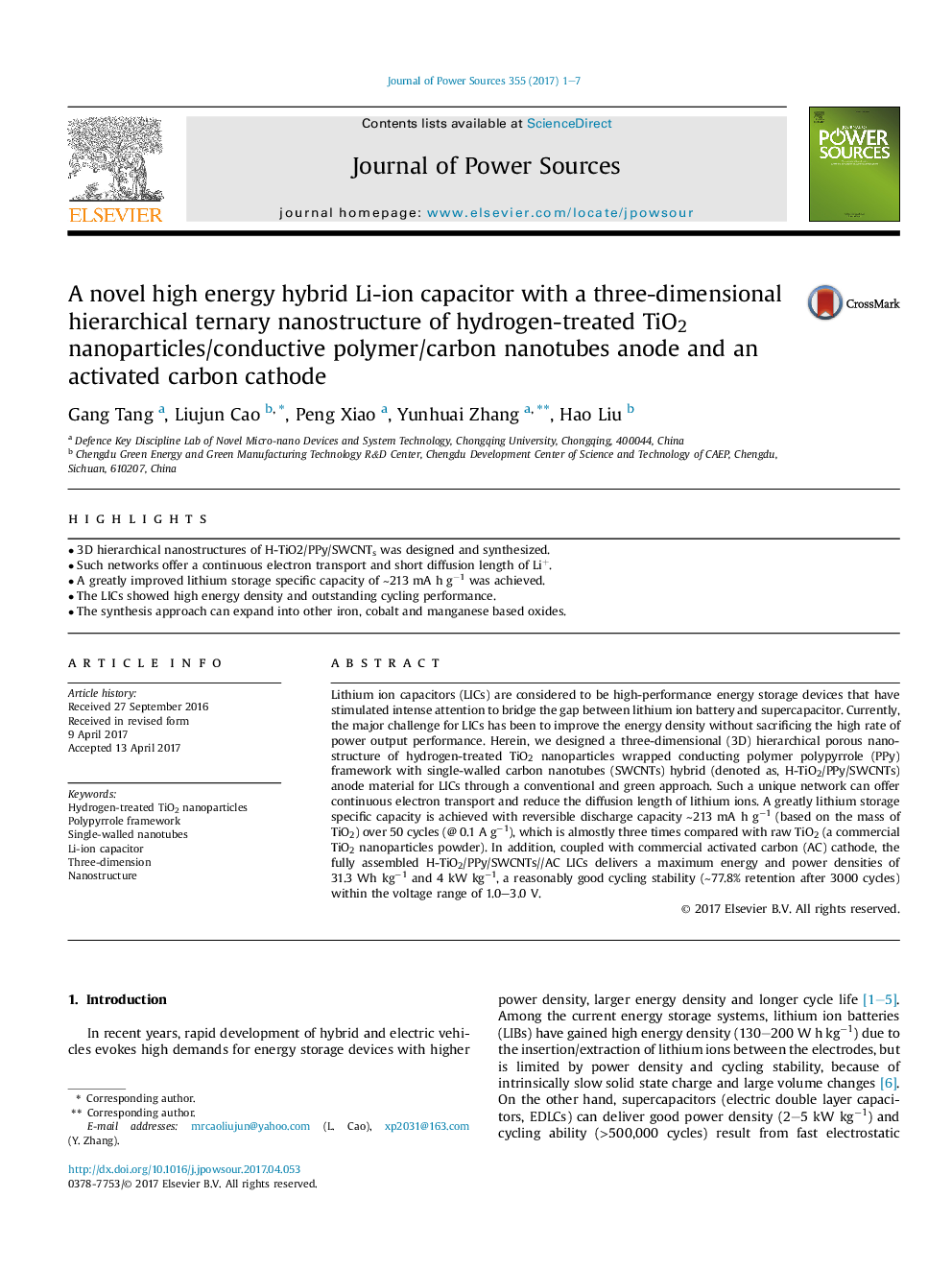| Article ID | Journal | Published Year | Pages | File Type |
|---|---|---|---|---|
| 5149133 | Journal of Power Sources | 2017 | 7 Pages |
Abstract
Lithium ion capacitors (LICs) are considered to be high-performance energy storage devices that have stimulated intense attention to bridge the gap between lithium ion battery and supercapacitor. Currently, the major challenge for LICs has been to improve the energy density without sacrificing the high rate of power output performance. Herein, we designed a three-dimensional (3D) hierarchical porous nanostructure of hydrogen-treated TiO2 nanoparticles wrapped conducting polymer polypyrrole (PPy) framework with single-walled carbon nanotubes (SWCNTs) hybrid (denoted as, H-TiO2/PPy/SWCNTs) anode material for LICs through a conventional and green approach. Such a unique network can offer continuous electron transport and reduce the diffusion length of lithium ions. A greatly lithium storage specific capacity is achieved with reversible discharge capacity â¼213 mA h gâ1 (based on the mass of TiO2) over 50 cycles (@ 0.1 A gâ1), which is almostly three times compared with raw TiO2 (a commercial TiO2 nanoparticles powder). In addition, coupled with commercial activated carbon (AC) cathode, the fully assembled H-TiO2/PPy/SWCNTs//AC LICs delivers a maximum energy and power densities of 31.3 Wh kgâ1 and 4 kW kgâ1, a reasonably good cycling stability (â¼77.8% retention after 3000 cycles) within the voltage range of 1.0-3.0 V.
Related Topics
Physical Sciences and Engineering
Chemistry
Electrochemistry
Authors
Gang Tang, Liujun Cao, Peng Xiao, Yunhuai Zhang, Hao Liu,
